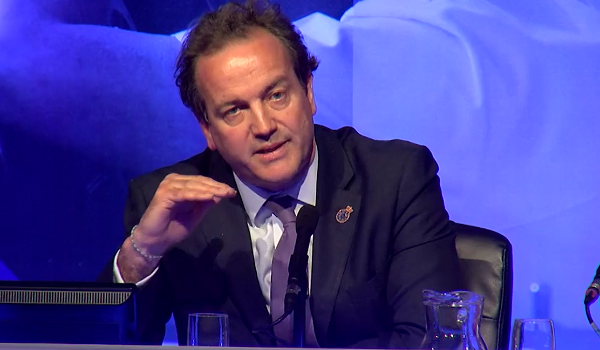Policing minister: Service must explain to victims why some crimes are not investigated
The Minister for Policing and the Fire Service says the police service must be more communicative with victims at a time when some forces are using algorithms to filter out crimes that are more difficult to solve.
Nick Hurd said policing was at “a watershed moment” and maintaining the trust of the public it serves was paramount.
Writing in the Telegraph, Mr Hurd said that any decision not to further investigate crimes “must be properly communicated to the victims”, and that “the same is true for cases where an investigation is closed shortly after the police record a crime, as it is for cases when an investigation has progressed to an advanced stage but ended without charge”.
He added that the Government’s Code of Practice for Victims of Crime clearly sets out what victims are entitled to and the new Victims Strategy lays out that the Government will consult on a revised code and on a Victims Law to reinforce it.
“At the Home Office, we support the police and hold them to account. We also want to empower citizens,” he said.
Mr Hurd’s comments came on the same day he failed to reassure that the Government would cover the £165 million cost of pension changes for 2019/20 in response to an urgent question posed by Louise Haigh, the Shadow Policing Minister in the House of Commons.
The comments also come after Chief Constable Sara Thornton, chair of the National Police Chiefs’ Council (NPCC) to the Association of Police and Crime Commissioners/NPCC Partnership Summit last week that the service has to focus more on core policing, especially violent and serious crime, to meet rising demands in those areas, as revealed in the most recent Crime Survey for England and Wales.
In response to Mr Hurd’s comments, the NPCC said: “We are concerned that forces are unable to cope with the basic demands for policing and we agree there is a need to be clear with the public about priorities in order to give them realistic expectations.
“This also includes the difficult decisions forces are having to make about which crimes are solvable and therefore which crimes should be prioritised for investigation.”







